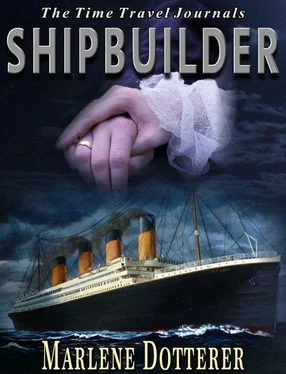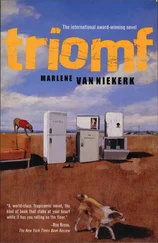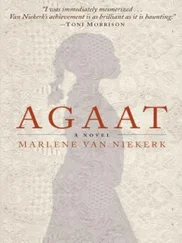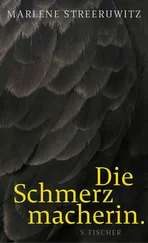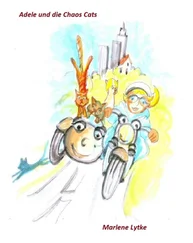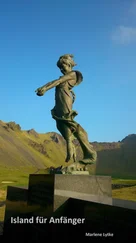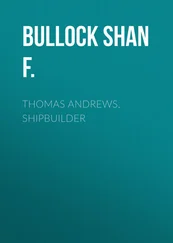Sam nodded. “I’d appreciate that. I think it’s safest to stick as close to the truth as possible. We can’t just make up all new personas.” He shrugged in Casey’s direction. “I imagine it would become very difficult to keep our stories straight, if we made everything up.”
Casey and Riley both nodded at this, Riley waiting for further information, Casey no doubt trying to figure out what in her past could be applied to this time period. Sam was wondering the same thing, disturbed at the difficulty of applying a lifetime of physics research to the low-tech task of a job in 1906.
“Do you have a pencil and paper?” he asked Riley. “I’ll write down a few skills and bits of experience you can work into a letter. Casey could do the same thing.”
Riley handed Sam a pad and pencil, but looked Casey over with a critical air. “She’s a girl. She could maybe work at the rope factory or as a servant.”
Casey looked flabbergasted, but Sam said, “Let’s assume her class is a bit higher than that. I don’t believe she has the background to do either of those jobs.”
Riley pursed his lips as he thought. “Seamstress?”
Casey shrugged. “I can sew up a cut in an emergency.”
“What?” Riley seemed quite confused.
“First aid,” Casey explained. “My mother’s a doctor and she made me take extensive first aid training. ‘So I’d be useful in emergencies,’ she always said. The only real job experience I’ve had has been working in the Botanic Garden as a student assistant.”
“Her major was horticulture,” Sam supplied. “Quite useful to Ireland in the twenty-first century.”
Casey nodded, looking hopefully at Riley, but he just shook his head. “I can’t imagine what use a girl would be in the gardens. That’s hard work.”
Casey rolled her eyes and Sam sighed, turning his attention to his pad of paper.
~~~
When they left Riley’s office an hour later, they were not much better off than when they arrived. Sam possessed a generic letter of reference and a newspaper folded to the classified section. He also had in his pocket two five-pound notes that he had reluctantly accepted from Riley, along with directions to a store that had cheap clothes. Riley insisted they take the money, as he had no other help to offer them and they would have needs while looking for work. He assured them it would not last long, but that it was all he could spare. He also asked them not to come back. If a prospective employer called, he would give a good reference, but he hoped to never see them again.
“I think we scare him, Dr. Altair,” Casey offered in consolation as she and Sam headed for the business district. “Give him some time to think about it. Maybe his scientific curiosity will get the better of him and he’ll be in touch.”
“Maybe.” Sam was doubtful. “Listen, we may as well get on first names, don’t you think?” He stopped and looked at her in regret. “I’m afraid we may be here a long time and we’ll be better off if we stick together.” He paused at her hesitant expression, then moved over to a bench and sat. Casey followed, but remained standing.
“I don’t know you, Dr. Altair,” she began, then stopped, and sat down next to him, staring at her feet. “Until last night, I’d never laid eyes on you. Now you’re the only person in the world that I know. You seem like a nice enough person,” she looked up at him with narrowed eyes, “although perhaps a bit careless at times.” He “harrumphed” at that and she smiled a bit, but turned serious, again. “I’m really afraid, Sam,” she said. “But I want to survive. I’m not sure what that means in this time period, but I guess we just take it a day at a time. And you’re right: we need to stick together.”
She stood again, but regarded him, still serious. “So let’s call it friends and see what happens. But Sam, I really do know karate. Brown belt.”
He laughed and stood as well, rubbing his arm. “I’m convinced you know karate,” he said as he started off toward the store. “You’re in charge of security.”
“Great,” she muttered, following after him. “At least I have a job.”
January 25, 1906—March 1906
With judicious use, the ten pounds lasted them several weeks. One pound, and a story about Sam being Casey’s guardian, got them a room at a boarding house in a middle-class section of town, with a bed for Casey, a couch that Sam could sleep on, and a folding room divider for privacy. This was expensive for one room, but the landlady, Mrs. Fitzsimmons, kept it clean. Board was included, along with the knowledge that their room was not rented out in shifts to other people. They purchased some inexpensive clothes—pants, suspenders, shirt, vest, jacket and bowler hat for Sam, and for Casey, a skirt, blouse, bloomers, petticoat, camisole, and a large, ugly hat with feathers that the shopkeeper insisted was a favorite of the “best ladies.” Casey horrified the shopkeeper by refusing to buy or wear a corset.
They decided that Casey’s cloak was neutral enough in style for her to wear, as were her boots, but Sam bought a used overcoat to replace his Kevlar rain jacket. He also bought a pair of shoes and a toothbrush. Casey had a toothbrush in her backpack, along with toothpaste, shrugging at Sam’s astonished expression.
“Sometimes, I stayed at a friend’s place overnight, which I obviously should have done instead of walking home last night. It’s not such a dumb thing.”
Sam didn’t think it was dumb at all, and realized that of all the teenage girls who could have stumbled into his experiment, he may have lucked out with the one he got. She seemed to have a good head on her shoulders. She didn’t waste time on panic or hysterics, preferring to get on with the task of surviving.
But she was far from okay. Until the battery ran out on her cell phone, Sam would often catch her sitting on the floor in their room, staring blankly at the pictures or messages stored on it. And although she tried to be quiet about it, when she went to bed and the lights were out, he could hear her cry.
~~~
Steady work did not come easily. Sam found occasional temporary positions that lasted for a day or two. He grumbled about “age discrimination,” but there was nothing to be done about it. Casey suggested he try teaching, perhaps at a technical school or even one of the public schools for young children. It turned out, though, that teaching was one profession where past experience and good references were important. And the one reference they had was not to be found, as Casey discovered a couple of weeks later, when Sam arrived for dinner just as the other boarders were starting to eat. She noticed that he looked upset, but let it go until they returned to their room.
“You look like you had a bad day,” she said.
He sat on the sofa, leaned back and stared at the ceiling. “Aye, you could call it that.” He said nothing else, and Casey waited until he continued, with a shake of his head. “Riley’s left town.”
“Riley?” She didn’t know what to make of that information. “Where’d he go?”
His gaze shifted to her. She realized he was really angry. “The official word from the university is that he’s on sabbatical. They wouldn’t tell me where he went or even if the sabbatical had been planned, or taken suddenly. My guess is, it’s sudden. I think he took off like a bat out of hell.”
“Because of us?”
“Hell yes, because of us!” Sam curved his hands in front of him, as he if wanted to choke someone, reminding Casey that she didn’t know him very well. Then he dropped his hands, more sad than angry. “I don’t understand it. Why such fear, Casey?” He looked bewildered. “I ask myself how I would have felt if people from the future had shown up on my doorstep. Like you said, considering my work, it was a real possibility. I hope…” he shook his head again, “…that I would have reacted with more professional curiosity. And courtesy.”
Читать дальше
